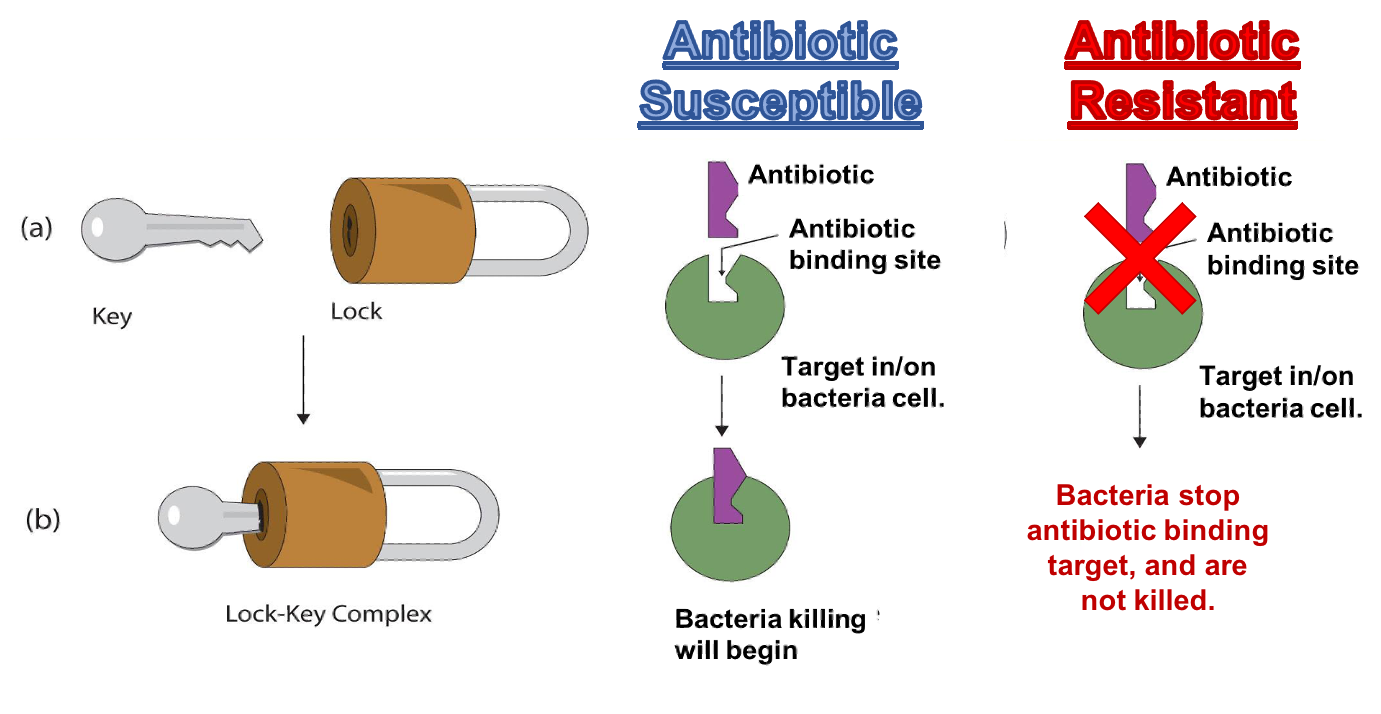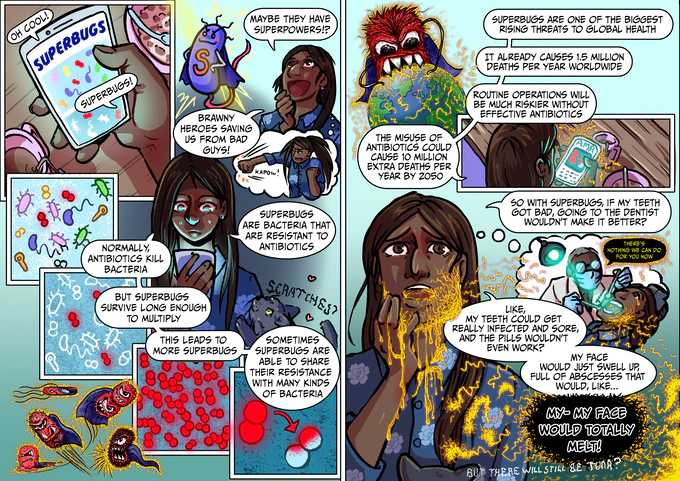
Antibiotic Resistance

What is antibiotic resistance?
When bacteria are killed by antibiotics, we describe that bacteria as ‘antibiotic susceptible’.
Put most simply, ‘antibiotic resistance’ is when bacteria avoid being hurt or killed by an antibiotic.
The impact of antibiotic resistance
So when a bacterium is ‘antibiotic resistant’ , antibiotics don’t work.
This is not a very good thing when doctors are trying to treat people unwell with an infection. If antibiotics don’t work, we cannot treat the infection. And if the infection cannot be treated, it means the person who is ill will stay sick for longer. They may get MORE sick. And in the worst cases, they may even die.
For this reason, it is REALLY important that we research and understand how bacteria become resistant, and how they spread from person to person, and around the world.
Imagine we would have to go back to a world without antibiotics!
A page from the sci-fi comic “Resist NOW!”.
To help imagine a world without antibiotics, take a look at this video of famous composers and pianists who lived before the discovery of antibiotics.
From Wolfgang Amadeus Mozart and Henry Purcell to Franz Schubert and Frédéric Chopin: musical geniuses who all died far too young in their 30s and 40s from complications related to microbial infections.
All of whom could have been saved if modern antibiotics had been available at the time.
Just think about how much more music they could have composed and performed if they had been able to live healthier and longer!
➡️ How antibiotic resistance spreads
Find out how superbugs emerge and spread between people and around the world


